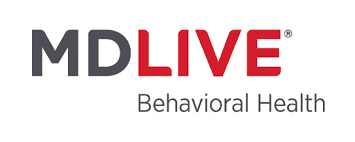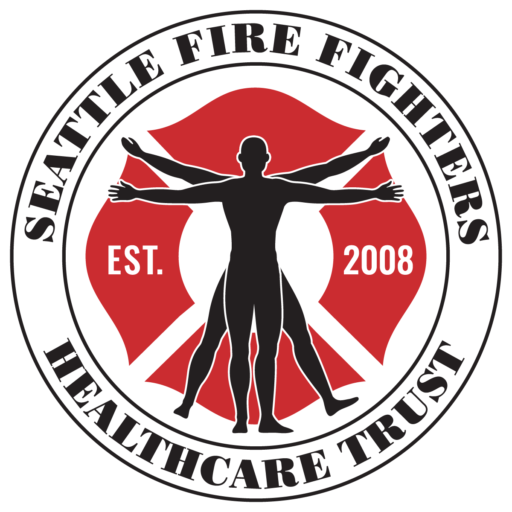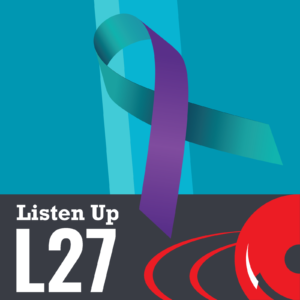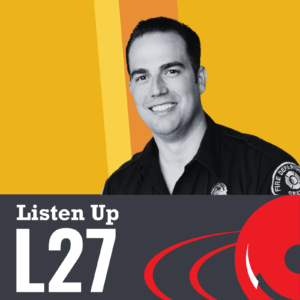Mental Strength: Peer Support, Burnout & Suicide Prevention
Jen Pennington sits down with Jamie Epting, a licensed mental health therapist at Station 2 Clinic, to explore the signs of burnout, trauma, and emotional distress among fire fighters—and the critical role peers play in early recognition and support. Jamie breaks down practical ways to check in with one another, how to have difficult conversations, and what to do when someone refuses help. With compassion, clinical insight, and real-world advice, Jamie shows how small acts of awareness can prevent crisis and build a stronger, more emotionally resilient fire service community.
Key Takeaways:
- Watch for the shift, not just the struggle: Sudden changes in a colleague’s routine, behavior, or mood may be the first sign they’re not okay.
- Support > Solutions: You don’t need to fix someone’s problems—listening, validating, and staying calm is powerful in itself.
- Say something—even if it’s awkward: A gentle check-in like “Are you good?” can open a life-saving door.
- Know your role—and when to escalate: If safety is at risk, involve leadership, peer support, or a mental health professional.
- Model mental strength: Fire fighters can lead by example through self-compassion, emotional regulation, and authentic conversations.
Meet Your New Station 2 Mental Health Providers
Resources
Station 2 Clinic Mental Health Services
In-Person and Virtual Counseling is available
Confidential Psychological Services for Fire Fighters
Providing comprehensive psychological services for fire fighters, dispatchers, and EMS providers. In Person and Virtual Therapy services are available. Call for details: 206-971-1365.
2318 4th Ave, Seattle, WA 98121
Hours: Monday – Friday, 8 am – 4 pm
Responder Health Peer Advocate Hotline
The Responder Health Peer Advocate Hotline is a 24-hour intervention and resource referral service for Seattle Fire Fighters and their families trying to find the right help, right now.
Peer Advocate Hotline
206-459-3020
The Responder Health Peer Advocate Hotline (formerly known as Safe Call Now) is staffed by officers, former law enforcement officers, and public safety professionals. The Responder Health Peer Advocate Hotline is a safe place to turn to get help from individuals who understand. Calls are completely confidential.
The program also coordinates with your health insurance to provide referrals for the crisis you are experiencing. The facilities providing the care are screened and trained by knowledgeable advocates to ensure the highest standards in patient care and confidentiality.
Virtual Counseling & Therapy
Behavioral Telehealth Option for Regence Members
Remember this is a free service for members on the Regence Plan. Learn more on their website.

Transcript
[00:00:00] Jamie Epting: Staying calm, taking deep breaths, feeling grounded in yourself as you’re listening to this person who’s having these bigger emotions or they’re venting to you, noticing that you know you’re breathing and that you’re staying calm and present for them, that’s huge, too.
[00:00:14] Jen Pennington: Today we’ll be speaking with Jamie Epting, one of the new mental health therapists here at Station 2 Clinic in Belltown. We’re going to go a bit deeper into our Mental Strength series of discussions to talk about signs to look for that might point to burnout or trauma in your brothers and sisters around you and, yes, maybe even yourself. We’re also going to learn a little bit about how to support and intervene if necessary. Jamie, welcome to the podcast.
[00:00:40] Jamie Epting: Thank you.
[00:00:41] Jen Pennington: So, Jamie, before we get started, let’s start with a bit about you. What drew you to working with fire fighters and first responders?
[00:00:48] Jamie Epting: Yeah, so I think what drew me to this role, for one, it was a. It’s a unique population to work with, especially as it pertains to mental health. I do have first responders in my family, and I have family with a military background. And there’s a lot of unique experiences that first responders and veterans have. And so my personal experience, for sure, and I think what’s kept me here is really the motivation that they have to be healthy, work on themselves in a way that allows them to be better at their job and be better family members to their loved ones.
[00:01:27] Jen Pennington: And why is peer awareness such a critical part of mental health in the fire service?
[00:01:32] Jamie Epting: Yeah, well, the fire service is definitely like a family, a family system depending on each other, being around each other. For much of the day, their lives even depend on each other. So they’re more able to see things that they might not be able to see in themselves. And we know that to be true for the ones that we spend the most time with is they can notice things about us that we’re maybe not so, so aware of.
[00:01:57] Jen Pennington: Let’s start with the basics. What are some subtle signs that a buddy might not be okay even if they say they are?
[00:02:04] Jamie Epting: Yeah, absolutely. So one of the first things I would say is maybe noticing when someone on your crew is withdrawing from normal conversations or even mealtimes. And this would be definitely a change in their behavior. So when you understand the person and what their normal patterns are, and then any deviation from that might be a sign that something is off or that they’re dealing with something heavier. Yeah. Withdrawing irritability or uncharacteristic sarcasm. We know in the fire service sarcasm and dark humor is used as a coping mechanism, but this would be more excessive use of those coping strategies. Something that just feels a little bit off to what is maybe more normal for them. Avoiding eye contact or being unusually quiet during downtime are some of the things that I definitely think would be a deviation, again, from that pattern, or maybe even something as simple as taking extra shifts to avoid going home. This can be a common one.
Seattle fire fighters tend to take on a lot of shifts, which I think is a little bit more normal in the culture. But again, if it’s deviating from the pattern, that would be something to be more aware of.
[00:03:14] Jen Pennington: Are there bigger red flags that are often overlooked?
[00:03:18] Jamie Epting: Bigger red flags as far as seeing that in someone else? Definitely. If you have a friend who’s talking more along the lines of feeling hopelessness, so not really being interested in things that they once enjoyed.
Again, social isolation is a big one. If that is a deviation from their norm, that’s a big red flag. Calling out even sick to work a lot and not really understanding why. There could be something going on at home that is really triggering, like a bigger.
A bigger response and having to show up for the job and be social, which would be the norm. What comes up immediately for me is suicidal ideation. This is a harder thing to notice in someone that you spend a lot of time with. So going back to the isolation, the withdrawing from crew meals, having more of a low mood, those would be things that you would see. You’re not necessarily going to understand what’s internally happening, but if you have enough of a relationship with someone and you maybe feel like something is off, I actually think it’s a really good thing to be able to ask if you’re having thoughts about not wanting to be alive. And the reason why is especially within the fire service culture is that one, we know that fire fighters have a higher risk of suicidality, and mainly because they’re exposed to a lot of trauma. And what happens with the nervous system when it’s exposed to a lot of trauma and that not just on the job, but also including deeper childhood trauma, the nervous system becomes overloaded. And so when the nervous system becomes overloaded, our brain doesn’t get the same healthy chemicals that it needs to sustain. Sustain a healthy lifestyle. So the natural thing that it does is it starts to think about a way out, because that becomes a very painful thing. So it’s actually a pretty normal response to having a lot of trauma. And I want to really emphasize that because there can be a lot of shame around suicidal thinking. But when you understand it from a neuroscience perspective, it is quite normal for someone to have these types of thoughts. When someone is more isolated with these thoughts, they are more likely to attempt or complete suicide. That, to me, is the biggest red flag. So if you’re close to someone in your crew or another fire fighter and you have an intuitive sense that something is off, I think having that direct conversation right then and there can be a very powerful thing for that person who might be struggling,
[00:05:42] Jen Pennington: … that is really great advice. And you don’t often hear somebody be as frank as you are right now about talking about that. That is really appreciated.
So some fire fighters are trained to push through and have a suck-it-up, buttercup kind of, you know, way of thinking about what they’re doing in their job and how to push the pain in different places. But how can peers navigate those cultural norms when trying to check in without coming off as intrusive and awkward? And I think you just gave a really good example of being very straightforward with someone and that that may be harder for someone else who’s trying to help their peers, right?
[00:06:25] Jamie Epting (continued): …So if you feel close to the person that you’re worried about, you have enough of a relationship with them, you’ve known them in different scenarios for years, or not even just that you’ve worked closely with them, you’re going to have a different way of approaching them because you’re going to know them a little bit better than someone else. And I think relatability is really important here. So you’re not like, “Hey man, are you suicidal?” Because that can actually obviously be very off-putting. But even like a gentle, “Hey, are you okay? You know, that call might have been really hard. How are you holding up?” Something that feels accessible to that person without necessarily being super intrusive into their space.
That being said, if you don’t necessarily have that close of a relationship or you’re scared of what might happen, I do think that’s where leadership would need to come in and be taking the role of having that direct conversation with somebody. Because what we do know is that those things can really go under the radar and things build up over time. And while we are seeing the culture shift in Seattle Fire Department around mental health—which is an amazing thing and that’s taken years and years of people actually acknowledging and having these conversations and intentionally changing the culture as it exists—leadership is still a big part of this because ultimately they’re going to have to be the ones, if it really comes down to it, to have that really direct conversation and to be really aware of what’s happening with their crew members.
[00:07:55] Jen Pennington: And you bring up an interesting point, because I know that a lot of fire fighters might feel intimidated to bring this up with leadership, which is also why there’s peer support—because peer support is the program where it’s confidential and rank does not matter.
[00:08:12] Jamie Epting: Thank you for bringing up peer support. Yes, peer support is a huge component of this. Not only are they also fire fighters, they know the culture, but they’re also trained to be able to assess this, to be able to get people the right help that they need. So I would even say that the leadership that’s responsible for a crew might want to reach out also to peer support if they’re noticing someone on their crew is really struggling and that person isn’t taking the steps that they need to—to get better or to get support. But yeah, shout out to peer support, because they really do so much and they are going to be that safe place. Especially if someone’s never really thought about these things or doesn’t even know where to start.
[00:08:52] Jen Pennington: Yeah, great that there are so many things now that people can do. You know, there is a greater support system out here. So one of the things that you talked about a little bit is, “Hey, are you okay?” and those types of things. But can you give us a few phrases that might sound a little bit more natural without making someone feel defensive?
[00:09:15] Jamie Epting: Totally. That’s a hard one. Because as a therapist, you know, you’re trained to be able to talk about these things without being awkward. So I want to acknowledge that as a fire fighter who’s trying to have this conversation for the first time, it’s probably going to feel awkward at first. And so you really want to trust yourself. Like, how do you talk to this person? And it’s probably going to be less about what you say and more about the energy that you’re saying it in. So maybe check in with yourself, take some deep breaths, know that it’s coming from a place of love and that you want to connect and make sure that they’re supported.
So, for example, you could say something like, “Are you good? I’ve noticed you’ve been a little off lately.” Or, “I’ve noticed you’ve been, you know, not eating meals with us. Is there anything I can support you with?” Some other ones might be like, “Hey, I’m not trying to pry, but if you ever need to vent, I’m here for you.” Even something simple like that—the person is going to feel like the door is open. And I think that’s actually the most important part: that they know you’ve offered that and that you’re open to it. And that can be enough.
[00:10:18] Jen Pennington: And I think it’s also about listening. It’s about offering what you can to just listen, even if you’re just sitting with the person.
[00:10:26] Jamie Epting: Yes, thank you for saying that. You want to be very careful not to try to fix it. And we know that fixing it is a big part of fire fighter culture. There’s this want to rescue, this want to fix it for the person. That’s not your job—to fix other people’s feelings. It can be your job to support them in their discomfort and the feelings that they’re having.
So when you notice that urge to try to fix them or try to convince them of not feeling what they’re feeling, that can actually backfire and make the person feel like what they’re feeling is wrong or create a shame dynamic. And we all know that shame is a very hard emotion to work through. So if you notice that someone is struggling, just listening and letting them talk can actually be more powerful than anything else you say to them.
[00:11:14] Jen Pennington: And, you know, there’s part of this that’s also how you distinguish between someone having just a bad day and someone needing more serious support.
[00:11:23] Jamie Epting: Yeah. So this definitely goes back to patterns of behavior. Everyone in the fire service that I’ve met has their own way of processing and coping with their job. They also have their own way of showing up for the job.
So something more serious would be when the person’s behavior feels off—and it feels off for an extended period of time. You haven’t seen them return to what we call the “baseline” of what we expect from them. It’s not just like an off day.
And everyone has an off day. Everyone has off behavior in that day. Or they’re just feeling more isolated, they’re feeling more down. If you’re doing multiple shifts in a row, you’re really tired. That definitely plays a huge role.
But if you’re seeing this constantly—a lot of irritability or a lot of argumentative behavior, just something that’s different continuously—that’s more serious. That is definitely a mental health check-in point.
[00:12:19] Jen Pennington: Okay, so let’s say that someone starts to open up. What should a peer do and not do in that moment?
[00:12:26] Jamie Epting: Yeah. So back to the fixing. You don’t want to fix it—so you just listen. This is a very powerful practice: validating their feelings.
This is not something that we’re taught how to do—it can be awkward and weird at first—but you just want to try to pay attention to what they’re feeling. So if they’re describing something that’s going on at home, for example—maybe their marriage feels really difficult, they have children who are struggling—you’re just listening to their story.
You want to be mindful of your body language. So, maybe you’re nodding your head, you’re giving good eye contact, you’re leaning in—you’re signaling to them that you’re listening to them. That can actually regulate their nervous system.
When someone is listening to us and they’re present with our emotion, we are biologically wired to relax and to feel more calm.
Also, notice your own feelings and emotions. So, staying calm, taking deep breaths, feeling grounded in yourself as you’re listening to this person who’s having these bigger emotions or they’re venting to you—just noticing that you know you’re breathing and staying calm and present for them—that’s huge too.
And then reminding them that they’re not alone. Since working with fire fighters, I have not heard something that is outside the normal realm of human experience. Every fire fighter has experienced something that another fire fighter has experienced.
There’s a commonality—not only with the job but also with social and family dynamics. Things that people struggle with tend to be across the board.
So just letting them know that you’ve had that experience—or that they’re not alone, that they are not the only person that has had this experience before—can make a huge difference.
[00:14:08] Jen Pennington: Yeah. So Jamie, if a fire fighter is really concerned about someone, but that person refuses help, what options do they have? When is it time to involve leadership or a mental health provider?
[00:14:21] Jamie Epting: Yeah, I think that’s a really good question because there’s a lot of loyalty and duty among crew members, right? So you always want to respect someone’s autonomy to make their own decisions around their health.
But safety comes first. Safety always comes first.
So if someone is talking excessively about hopelessness, and that becomes a glaring red flag to you—you’ve tried different avenues of getting them support or you’ve tried to offer support and nothing’s happening—I think that would be a good indication that this is out of your hands and that you’re actually very concerned for your buddy’s safety.
You’d want to talk to leadership about that.
Any expressing of suicidal thoughts—again, if you’ve tried different avenues and they’re not open to it, but you really feel there is a concern—that’s another good example.
And you’ll know in your body when that feels wrong, when it feels off, and when you feel scared for their safety.
Another important one is using substances dangerously. We all know that drinking is a big part of fire fighter culture. But when that drinking becomes dangerous—to the person or others—for example, drinking to blackout—that is a dangerous situation. Anything could happen: drunk driving, driving while intoxicated—also very dangerous.
These are indications of something deeper happening.
So if someone is self-medicating to a point that it is causing danger to themselves… and then, you know, another one is just general acting in ways that jeopardize the safety of themselves and others. That can even be something you notice on your shift—someone normally has a role, and that role is getting missed and that’s causing danger to the crew or to the people you all are serving.
That would be another big red flag: this is something off. I’ve addressed it with them, I’m respecting their autonomy, but nothing’s changing. And this is where leadership becomes important.
[00:16:26] Jen Pennington: The missing piece to this—I think you were going with, like, or peer support or a spiritual leader or chaplain—all avenues of support…
[00:16:35] Jamie Epting: But if those aren’t doing anything, this is—I think—where accountability to safety comes in. And that is leadership’s role.
[00:16:43] Jen Pennington: Let’s move now to talk a little bit about self-awareness and leading by example. You’ve talked about the power of self-compassion and nervous system regulation. How can fire fighters model mental strength in a way that encourages others to take their own well-being seriously?
[00:17:02] Jamie Epting: Yeah. Yes. So fire fighters are notoriously compassionate human beings. That is definitely something that I’ve noticed and felt. And sometimes that compassion does not translate to themselves.
So we’re not raised in a culture—or even within families—to love ourselves and to take care of ourselves in healthy ways all the time. Most people are not. And so once there is a pattern of giving to others and constantly helping others, sometimes we can forget to take care of ourselves in meaningful ways.
So modeling self-compassion starts from the inside.
How do you think about yourself on a day-to-day basis? When you make a mistake or you mess up—are you criticizing yourself or are you giving yourself grace and compassion, telling yourself, “I did the best that I could, and I’ll get it better next time”?
How do you talk to yourself? Are you making negative statements or engaging in excessive self-deprecation? All of those are connected to self-compassion.
And so what we know from the science and the research is that when we talk to ourselves positively—and I’m not talking about fake positivity, it’s not the same, it doesn’t have the same effect—but when we give ourselves the same compassion that we give to others, our nervous system is healthier and it regulates more easily.
The critic—what we call the “inner critic” in the psychology world—is a part of protecting us. Right? So, if we remember not to do that thing that we did, we’ll survive. But then it becomes excessive. And if it’s excessive, then it actually can increase our depression and our anxiety over time.
Talking yourself up—not in a conceited way—but just like, “Yeah, I did the best that I could with what I knew, and I’m going to do better next time,” as opposed to, “Wow, I really messed this up and I’m a piece of crap.”
It’s actually much better to be kind to yourself than it is to beat yourself up about something.
And when you do that around other people, it can actually be quite contagious. People even feel good when they notice someone else having self-compassion for themselves.
And the cool thing about our nervous systems is that they respond to everyone around us and everyone in our environment.
And if we’re not conscious of that—if you’ve ever been around someone who’s really depressed and you start to feel sad—that’s what I’m talking about.
But the same can be true if you’re around people who are positive and uplifting—you also start to feel the same way.
And so because fire fighters are constantly closely connected to each other, being mindful of the ways that we talk to ourselves and each other can actually have a huge impact on the mood of everyone.
[00:19:53] Jen Pennington: Oh, I love that. It’s also like the idea of sort of giving permission to yourself and then expressing that permission outwardly so that it models that behavior to others. Hopefully that’s contagious. So that’s how I’m hearing what you’re saying.
[00:20:13] Jamie Epting: Yeah. So we know compassion fatigue is real for any first responder, but most especially—I’m thinking about some of the stations that have constant calls that really deplete empathy and compassion—and that is completely normal.
We do not have endless amounts of brain chemistry to withhold endless amounts of empathy.
So being able to have a pattern of talking good to yourself and talking good to others can actually really fill that cup—more so than if it’s just, you know, you continue to have these really difficult calls over and over and over again with maybe even the same person coming back.
And being drained about it is a very different experience than coming back and uplifting each other and doing something positive and self-compassionate.
[00:21:01] Jen Pennington: I like it. Lastly, your last question today is: what’s something you’d like every fire fighter to remember the next time they wonder, “Should I say something?”
[00:21:10] Jamie Epting: Definitely say something. It’s better to ask for forgiveness than permission.
And in my experience, it is a better thing to show support than to question yourself—because there’s going to be a part of you that always exists, your intuition, your inner voice, whatever it is—to trust that piece.
And that is so powerful for the person who needs it. And if they don’t need it, they’ll tell you, “Yeah, I’m fine,” and you’ll feel that too.
So 100%, say something. You could save a life. You can make a huge difference. I could tell you so many stories about people who have been in that situation—who were really struggling—and it took one person to notice and change the course of their entire life.
[00:21:56] Jen Pennington: That is a great way to end this episode. And we thank you so much for being here, Jamie. I’m also going to post some resources on our page.
We have an article that also talks about both Laura and Jamie here on our website. And there is a webinar on July 2 that is about this subject. So please remember to sign up for that on the FF Clinic website.
Look for that webinar under their Workshops tab. So once again, thank you, Jamie.
[00:22:28] Jamie Epting: Thank you so much.
[00:22:28] Jen Pennington: You bet.
Thanks for joining us. Listen Up L27 is a Seattle Fire Fighter HealthCare Trust production. This podcast is produced by the Rhizome Collaborative. I’m your host, Jen Pennington. And until next time, stay safe and stay healthy.





